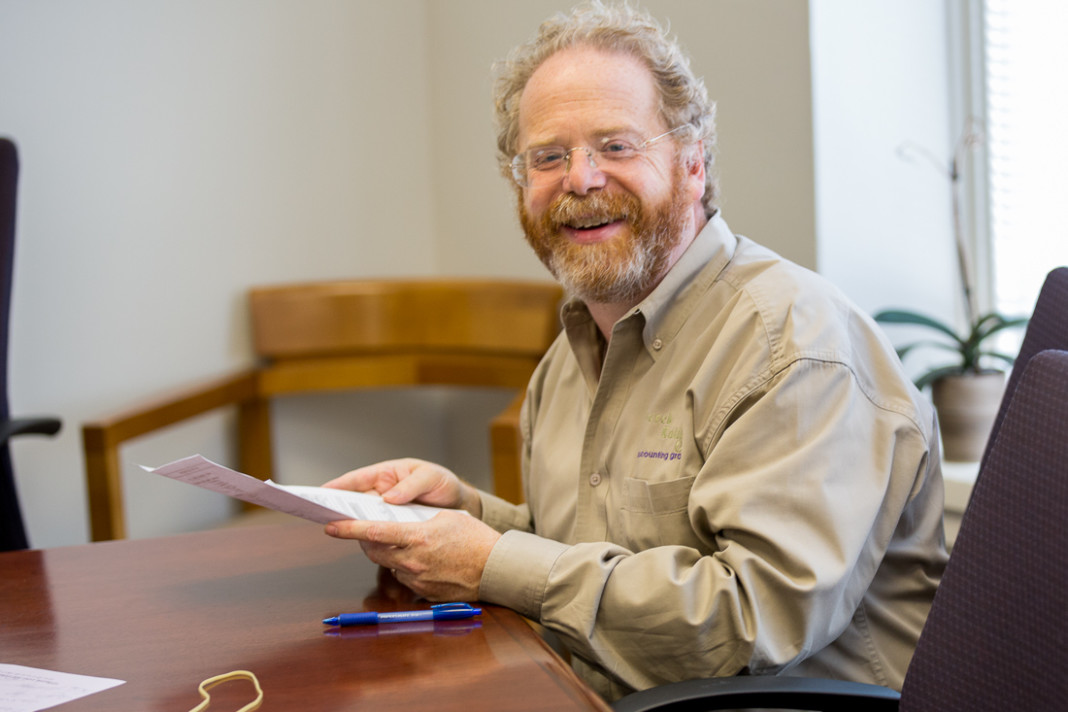Sterck Kulik O’Neill is one of the highest-rated accounting firms in the United States, having earned the very selective Diamond Certified Award for Quality every year since 2005. Kolau had the privilege to visit their headquarters in San Francisco and interview Geoffrey Kulik, partner, and Galen Workman, Director of Marketing, to learn what makes their accounting firm one of the best.
Sterck Kulik O’Neill is the only Diamond Certified accounting firm in all of San Francisco. What makes your accounting firm different?
Geoffrey: We really tend to focus on what the goals of our clients are. We have a lot of small business clients. We want to understand what drives them and what their long-term goals are. That allows us to provide advice to them on how to structure their business and how to structure their transactions in a way that ultimately supports their long-term goals.
We really view our relationship with our clients as much more than simply preparing a tax return. We really want to understand the whole aspect of who they are and why they are doing what they’re doing.
What channel is driving more leads to the website? Is it your blog? Twitter? Facebook?
Galen: Actually, what drives people to our website is Yelp. We have pretty good Yelp reviews, and we advertise on Yelp.
What do you do to encourage customers to leave a review on Yelp?
Geoffrey: We encourage through word of mouth, so when a client gives us thanks for doing a good job, we suggest that that’s a good avenue for them to let us know. But I don’t think we have any formalized referral process to try to get them to do Yelp reviews.
Galen: Once a year, we’ll put something in our monthly email newsletter saying “look how we’re doing on Yelp. We’d love it if you would join in.” But we don’t incentivize them in any particular way.
So you mentioned email marketing. Is that an important part of customer retention? How do you leverage email marketing to encourage customers to come back?
Galen: We like to use email marketing as a tool to keep our name in their minds. We don’t really have any firm metrics on the results of that. We get told by customers when they come in that they liked a particular article or they liked seeing the newsletter, but it’s more just a reassurance that we’re still there. Just keeping our name in front of the client.
Geoffrey: We send an email out about once a month, and we’ve had the experience where a new client will come to us and relay that they’ve been receiving our emails for three or four years. That email has kept our name in front of them. They may not have had a real need when they first started getting the newsletter, but when they finally got to that point, they knew who to call. So it’s been a real strength of doing that kind of a campaign.
So the client will tell you “hey, I received the newsletter”…
Galen: …”and finally decided I needed a CPA”. We’ll put them on the newsletter list because they may sign up, or they may ask a question and we’ll say “we’ll put you on the newsletter list” and we don’t hear from them. As Geoff said, two years later, they’ll decide that they can’t be doing their taxes one more time themselves, and they’ll come to us.
Give me a 2017 prediction. In your opinion, how will the relationship between accounting firms and accounting software evolve? Will they compliment each other?
Geoffrey: You’re talking about Quickbooks, Xero…
Exactly. Are they a threat or an opportunity?
Geoffrey: I see them much more as an opportunity. Certainly with a product like Xero, and Quickbooks online has made great strides as well, it’s much easier to collaborate with a client. So in some cases, we actually are bringing their bookkeeping in house, because that kind of a platform makes that very easy to do. In some cases, they’re still maintaining control over their bookkeeping, but it’s an opportunity for us to work with them at a higher level, seeing the numbers that they’re seeing, and being more involved.
The old model was you’d get a file when there was a reason for you to get a file, and then you’d have to do whatever you’d have to do to it, and talk about it. So that whole process is now much more timely and benefits, I think, everybody on both sides.
Your online educational component is very prominent. The blog is called The Accounting Educator, there is a section in the site called Ask a CPA, and a tab called Tips and Tools with extensive informational resources in a plain language geared towards people with no accounting knowledge. What is the feedback you are getting from these educational resources?
Galen: Potential customers like that we give information that applies to their situation, so they feel like they know what we’re doing. Then they call us when they want specific advice for their situation. So it’s good that they can tell online that we’re a reliable source and that they can find the information they need. Later on, they come to us for help in their particular case.
What is the most successful customer acquisition channel?
Geoffrey: Referrals from current clients are incredibly important, but I think the online presence adds credibility when someone makes a referral.
Galen: I get calls saying “so-and-so told me that they use you and I checked you out online and now I want an appointment.”
Geoffrey: There’s a tremendous amount of people who find us on Yelp first. We used to get a big return on Google ads, but now they give us almost nothing.
Galen: We’ve launched AdWords campaigns for months now, but that’s given us zero new clients. Initially we tried it, and we were getting good results, but we stopped about a year ago because we thought we weren’t getting any results, and then someone came to us with a campaign, and they set up a separate landing page. Since then, they have a separate phone number so they can track who calls us. We have a separate contact form, so we can tell who came from that site, and a separate phone number. We got one person who called, and they wanted to know how to sign up for Covered California. That was the one question we got from that form. So we got no potential clients.
Do small businesses make up most of your clientele?
Geoffrey: It’s probably about 45% individuals. And the reason I’m saying 45% is because if we do business returns, I’m counting those people. So we have a tremendous number of individual returns that we do, but I think that the business return is responsible for a little over half of what we do.
Going back to the educational part, would you recommend to small accounting firms that they do similar educational content?
Galen: Yes, but gradually. You can do your educational content slowly over time during summer when it’s not a busy season. If you’re a small firm, you can build it up page by page when it’s not high tax season. So it keeps you busy on your toes during the summer, but at the same time, the content is there year-round.
Too many people want a perfect website day one, and they won’t put anything out until it’s ready, so they have nothing up. I do Internet marketing for firms in other industries, too, and I’ve discovered that it’s particularly difficult for accountants to give up control of the content. They want everything to be perfect. Perfectly spaced, perfectly phrased, because they’re detail-oriented. If they want to answer a question about inheritance tax, they want to cover every possible scenario, so you have to work with them on the marketing as well. “Let’s just put the important stuff out so they can call us if they have more questions.”
Your Twitter account has some really funny tweets that are not accounting-related, as well as pictures giving a personal touch to the firm. How important it has been for Sterck Kulik O’Neill to have this personable and fun approach to doing business?
Geoffrey: I think they do. It’s not uncommon for our clients to say “you don’t seem like an accountant to me.” And I take that as a compliment, because they’re talking about my demeanor, not my professionalism. So they know a little more about me.
I think we benefit from being a relaxed firm, and our clients can tell that about us. We still respect clients’ privacy, nobody knows about anyone else that we’re working on, but on the other hand, we’re open to forming relationships.
Galen: Most of the calls for new clients come to me, and I’m not even an accountant. So during tax season, I can call them back. Most people I call back, they’re just surprised that an accounting firm is calling them back.
So one of the things I would advise small accounting firms to do is to have someone other than a partner call them back to get the basic information. Invite them in to see the partner or whatever, but don’t funnel everything through a partner, because they’re busy and won’t get back to people as quickly, especially during a busy time.
Geoffrey: This time of year, clients will almost apologize for trying to take any of our time, and that’s not a healthy relationship. And it also sets the bar pretty low for indicating that you’re proactive.
Galen: If you have a great online presence, but someone doesn’t call back or respond to an email, it makes it hard for that person to magically become a client.
What’s your number one tip for small accounting firms (one or two people) about where to start with customer acquisition?
Geoffrey: Phone calls. Almost everyone we talk to is surprised that they either got ahold of me or that we called them back. This is tax season right now.
Galen: The industry has a very bad standard for calling clients back. One of the things this firm does is they don’t screen their calls. So if you call and ask for Charles or Geoff or something, we don’t say “who is it?” Because we have heard that many clients think that their CPA is avoiding them. Because the work isn’t done, or whatever the deal is.
So we put the call through without asking who it is. They will probably get a voicemail, but so would I. But our partners are really good about returning phone calls. Just return phone calls. It’s not a high-tech solution, but it’s a key to building a customer relationship.
What is your number one tip for customer retention? How can a small firm keep clients for more than one tax season.
Geoffrey: The returning calls is important there as well. Somehow breaking the cycle of “I’m too busy to talk to you” is really important.
Galen: Another thing we try to do is find out why. If someone goes away, call them. Find out why. Have they moved? Have they died? Do they perceive that you don’t care? And sometimes when you call and talk to them about that, they come back.
Geoffrey: From our side of the desk, clients believe they are the most important thing in the world. So when you have a bunch of competing clients who all think they are the most important, you have to recognize that they are the most important. And delivering to them is what you need to do to keep the client coming back.
—–
The San Francisco CPA firm of Sterck Kulik O’Neill offers business development consulting, audit, tax preparation, IRS Audit, retirement planning, business roundtables, estate planning, bookkeeping, QuickBooks consulting, Interim Chief Financial Officers, and a full range of traditional public accounting services.
—–
Kolau is the easiest way to market your small business. Request early access and start owning your small business online presence today. No marketing knowledge needed. No agencies required. Now you know, now you can.
Be sure to subscribe to our blog for more articles like this!




















